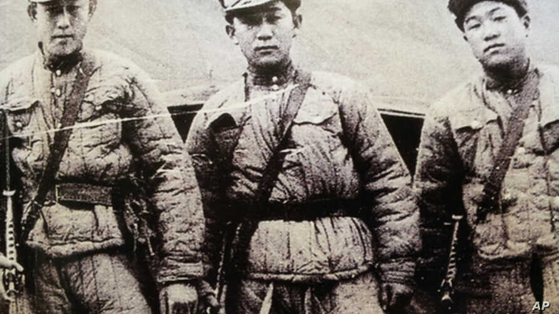The Peninsula
Long Overdue Compensation for Korean War Veterans

What Happened
- In April, the Defense Ministry announced a new law that will compensate members of the Korean Liaison Office (KLO) that worked under the UN and United States during the Korean War.
- KLO veterans have no documented military record in South Korea because they performed clandestine operations under foreign command.
- The KLO was first brought to public attention in 2000 by National Assembly Rep. Kim Sang-ho.
Implications: The Moon administration has demonstrated a commitment to rectifying historical transgressions and oversights committed by the government. The formal recognition of the KLO is part of this broader recognition of the country’s recent past. In April, President Moon gave a speech recognizing the victims of the 1948 Jeju Uprising, in which the people of Jeju Island revolted against police brutality and the division of the peninsula. The protesters and insurgents were wrongfully portrayed as communists, justifying their massacre and imprisonment. In addition to the formal recognition, the Moon administration implemented a law to compensate victims’ families. Investigations into the Gwangju Massacre were also amplified under Moon, consistent with the government’s broader commitments to recognizing historical injustices.
Context: The KLO often worked behind enemy lines to gather intelligence or perform guerrilla operations. It consisted of women, children, and many North Koreans. The assigned tasks were dangerous and KLO missions had a high casualty rate. Despite the danger of the work, much of the KLO’s accomplishments were undervalued. One of the most well-known operations involving the KLO is the retaking of the Palmi Island lighthouse near Incheon. There is limited information available to verify what the KLO did during the war, which is an obstacle for living members to gain proper veteran status in South Korea. Many KLO operatives were North Korean refugees that faced persecution and scrutiny after the war, leading most to leave for the United States.
This briefing comes from Korea View, a weekly newsletter published by the Korea Economic Institute. Korea View aims to cover developments that reveal trends on the Korean Peninsula but receive little attention in the United States. If you would like to sign up, please find the online form here.
Korea View was edited by Yong Kwon with the help of Melissa Cho and Alexandra Langford. Picture from the National Archive of Korea.
